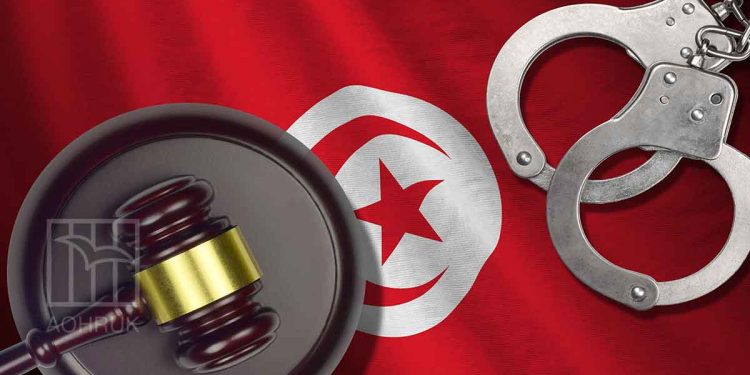A Tunisian court handed down heavy prison sentences on Friday night in the “Conspiracy Against State Security” case, sparking outrage among families of the accused and condemnation from human rights groups. The verdicts, which range from 13 to 66 years in prison, targeted several prominent opposition figures and have reignited concerns over political repression in the country.
The rulings were issued by the criminal chamber for terrorism-related cases and involved 40 defendants, including high-profile political figures such as Noureddine Bhiri, a senior official in the Ennahda movement; Ridha Belhaj, former chief of staff to the presidency; Issam Chebbi, Secretary-General of the Republican Party; and Ghazi Chaouachi, a former minister and member of the National Salvation Front.
According to statements cited by the Tunis Afrique Presse agency, a judicial official stated that sentences for those currently sentenced in absentia would be enforced immediately upon their arrest.
The charges levelled against the defendants include “conspiring against internal and external state security”, “forming a terrorist group”, “inciting rebellion”, and “attempting to undermine public order”. However, the lack of evidence has fuelled scepticism and accusations of politically motivated prosecutions.
Critics argue the proceedings amount to a “political trial cloaked in criminal charges”, as part of a broader crackdown on opposition voices and free expression. Human rights organisations have denounced the lack of transparency, noting prolonged pre-trial detentions, limited access to legal counsel, and restrictions on communication with family members.
The case, which began in February 2023, has become a flashpoint in Tunisia’s deteriorating political climate. Since then, arrests and prosecutions have expanded to include opposition figures, lawyers, journalists, and civil society activists. Observers say the judiciary has lost its independence and is being used by the executive branch to stifle dissent.
The origins of this crackdown trace back to July 2021, when President Kais Saied enacted a series of extraordinary measures — suspending parliament, dissolving the judiciary council, and rewriting the constitution via a contentious referendum. While the presidency claims these moves were necessary to “correct the course of the revolution”, rights groups and analysts argue they represent a shift towards authoritarianism, eroding constitutional safeguards and consolidating power in the hands of one man.
With no indication that the government intends to change course, the latest verdicts signal a deepening political and human rights crisis in Tunisia, one that threatens to unravel the hard-won gains of the 2011 revolution, fought in the name of freedom, dignity, and social justice.


























